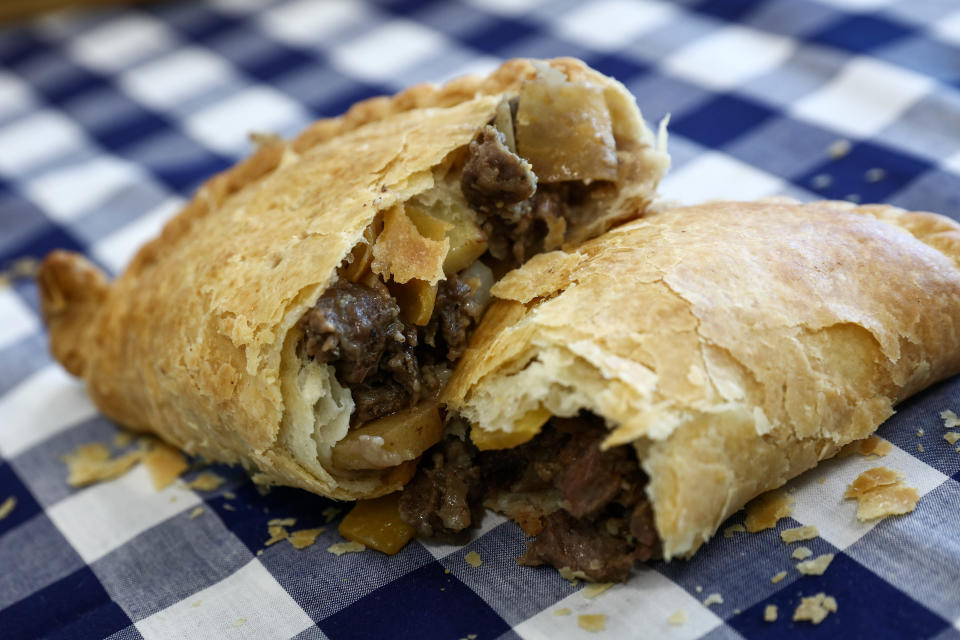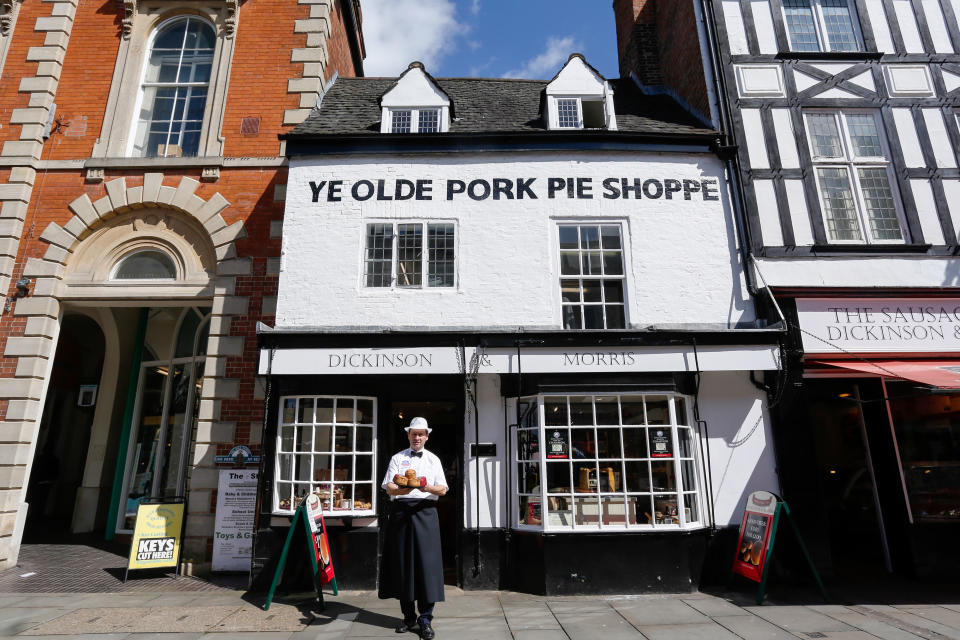How Cornish pasties could fall foul of a US post-Brexit trade deal

US firms want to use a post-Brexit trade deal to push “imitation” Cornish pasties and Scotch whisky into the UK.
Lobbyists in the States are pressing Britain to drop its protections on geographical names once the UK leaves the European Union.
Goods such as Cornish pasties, Stilton cheese, Melton Mowbray pork pies and Scotch whisky are currently protected by EU rules.
MORE: This is the difference between scotch, bourbon, and rye
It means that only food and beverages made in certain areas can claim to be genuine examples of that product and cannot be made elsewhere and carry that label.
Other examples include Parmesan cheese, Parma ham and Champagne.
But, once the UK leaves the EU, those protections could disappear and companies in the US want to exploit that situation by selling “Made in America” copies.
Many purists will see that as a threat to historic British foodstuffs.

The flip-side is that British wine producers could also be able to sell their fortified beverages as “sherry”.
Shawna Morris, of the US Dairy Export Council – which has been lobbying the US government on UK trade deals post-Brexit – told the i that it was “preposterous” that Italy was able to “monopolise” Parmesan, for example.
“We think the ability to take a fresh look at UK regulation through the Brexit process provides the UK with a great opportunity for taking a much more reasonable approach to what’s been a very controversial issue over the years,” she said.
“So, for instance, there’s West Country Farmhouse Cheddar on the books, but any time I’ve ever asked anyone from the UK if they have any intentions to try to claw back Cheddar, the response has been, ‘Of course not, that would be preposterous.’ We think it’s just as preposterous for the Greeks to reclaim Feta.”
MORE: World’s most expensive shot of whisky exposed as a fake
Should the UK withdraw the protected status from certain EU products but keep British ones, it’s likely to spark another political battle.
However, the Department for the Environment, Food and Rural Affairs insisted that leaving the EU presented a “golden opportunity” to strike new trade deals to boost the products of UK farmers, growers and food producers.
There have been concerns raised that in order to strike trade deals with the US, for example, that standards might have to be lowered, including allowing chlorinated chicken into the UK.

 Yahoo Finance
Yahoo Finance 
